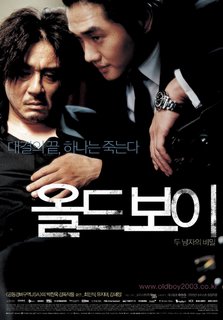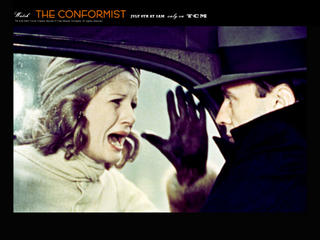Annoyed and Pissed Off
I don't know if it is just the end of the year blues or something more serious, I have been feeling extremely annoyed, angry and pissed off with everything for the past few weeks. I am trying to "inhale positive energy"* wherever I can but I think they are in short supply these days or perhaps I send out too many negative vibes to people who spread positive energy all around, which might well be the case.
So imagine my anger and the depth of my helplessness when I read something like this. The first atrocity (now, I am all for freedom of thought and choice, even for the stupid people but...), Richard Corliss, the film critic for Time selects Bhansali's Black as one of the best films of the year. Next comes another, far more mind-numbingly tragic atrocity. A stupid asshole of a journalist goes to Bhansali and asks him, "sanjay, kaisa lag reha hai?" to which our Sanjay modestly replies, "main kya kahoon"! I felt so sick, I almost puked on my keyboard.
Corliss had earlier selected Devdas as his number one film of the year expressing particular fondness for the "fabulous frocks and the people who fill them" while adding the fact that when it played at the Cannes film festival earlier that year, he was the only international critic who stayed till the last minute, many of whom were masochistic enough to sit through the nine-minute rape scene and worse acts of violence in the French shock-merchant Gaspar Noe's Irrerversible (which is, by the way, as abominable as anything Bhansali has ever made, but far more inventive). Derek Malcolm saw through all this at the same festival and pronounced it to be "a pretty silly three hours worth of romance, song and dance, and utterly tasteless - if luxuriant - production design. Not fit to lick the boots of Lagaan."
My problems with Black are simple enough. It uses the plight of a blind-mute girl and an ailing old man to tug at viewer's heart-strings and extract cheap emotional response from its viewer without enlightening him about human condition, about love, about bonds that keep two people together or makes one dependent on another human being or even how should disabled and terminally ill people be treated. It was kind of an unreal special-effect movie meant for audiences who like to shed a few tears to clear their lachrymal tract and then feel-good about having got their money's worth (paisa-wasool movie). Anthony Lane in his New Yorker review of 2046 called Wong Kar-wai's style, "visual dictatorship". I wonder what he would have to say of Bhansali's style. Wong's dictatorial style at least forces you to see things from a new perspective, although it remains strictly his perspective (to which I don't have any problem) not like Bhansali; whose idea of a good visual design is to mug the senses, and not to stimulate them. He has himself admitted to this in an interview. And then he had the gall to say that he was inspired by Kieslowski to make Black. Fucking asshole. Give me the camp and kitsch of the incestuous clan of Chopras and Johars anytime than these mindless fucks of these phony bastards who call themselves artists.
A few readers have complained that I never write about Indian movies here. Well, here is my token bollywood post. Happy now?
*Over to Anurag who will explain everything about positive and negative energies.
P.S. I have never used swear words in any of my posts, that is until today. But then, I have never written about Bollywood before.









